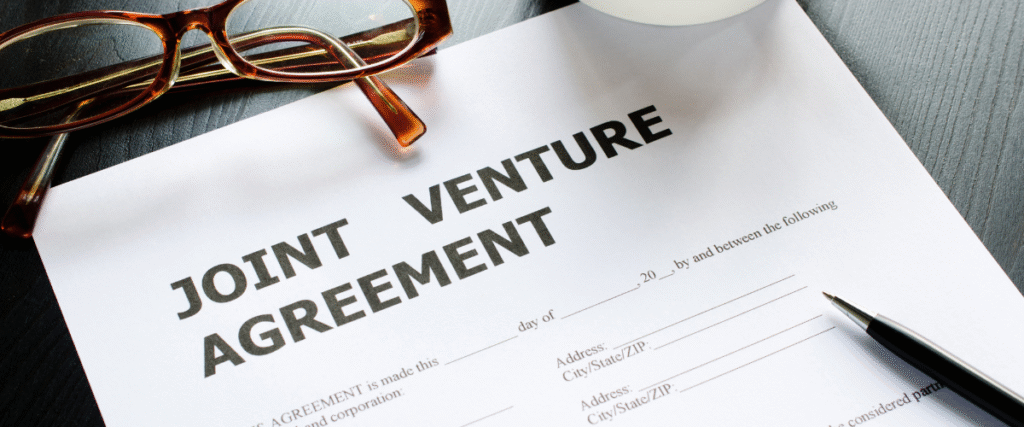Estimated reading time: 3 minutes
A “Pre-bid Joint Venture Agreement” for attending a tender defines the legal framework under which two or more entities agree to collaborate for a specific bidding opportunity. It establishes how the parties will jointly prepare, submit, and, if successful, execute a project under the tender.
Such agreements are especially common in large infrastructure, engineering, and public procurement projects where collaboration between firms enhances technical strength, financial capacity, and overall competitiveness.

Objectives and Benefits of a Pre-bid JVA
Attending a tender clearly defines the legal framework under which two or more entities agree to collaborate for a specific bidding opportunity. In this context, it establishes how the parties will jointly prepare, submit, and, if successful, execute a project under the tender.
Moreover, such a Pre-bid Joint Venture Agreement is especially common in large infrastructure, engineering, and public procurement projects, whereas collaboration between firms enhances technical strength, financial capacity, and overall competitiveness.
In particular, within a Joint Venture Agreement, the engaged parties ensure that all participants fully understand their rights, responsibilities, and obligations. Consequently, this agreement provides a structured framework for effective cooperation in pursuing tender opportunities. Furthermore, it protects the interests of all parties while reducing the risk of misunderstandings or disputes.
The primary objectives of a JVA
- Defining Roles and Responsibilities: Clearly outline the roles and responsibilities of each party involved.
- Establishing Decision-Making Processes: Specify how major decisions will be made, including voting rights and quorum requirements.
- Managing Financial Contributions and Profit-Sharing: Detail the expected capital contributions and how profits and losses will be distributed.
- Ensuring Compliance and Customization: Ensure the agreement complies with local laws and regulations. Seek legal advice to confirm all necessary legal requirements are met. Customize the agreement to suit the specific needs of the business partnership.
This process involves adapting the clauses, language, and structure to fit the unique circumstances of the collaboration.
By following these guidelines and creating a comprehensive agreement, parties can foster a successful and collaborative tender process. This increases their chances of winning the contract and achieving their business objectives.
Ultimately, a Joint Venture Agreement serves as a cornerstone for collaboration — transforming competition into partnership and turning opportunity into achievement.
Check out more pages of our website for related content:
- Consortium Agreement
- Collaboration Agreement
- Profit-Sharing Agreement
- Pre-Bid Agreement
- International Joint Venture Agreement
Access the Full Contract Directory Index
You can browse the complete alphabetical list of all commercial, financial, and project-based contract templates by visiting our A–Z Contract Index.
References
- Organisation for Economic Co-operation and Development (OECD) – Procurement and Project Partnerships Guidelines:
- World Bank Procurement Regulations – Borrowers’ Guidelines on Joint Ventures:
- International Federation of Consulting Engineers (FIDIC) – Model Joint Venture Agreement:
- United Nations Commission on International Trade Law (UNCITRAL) – Model Law on Public Procurement
has been added to your cart!
have been added to your cart!



